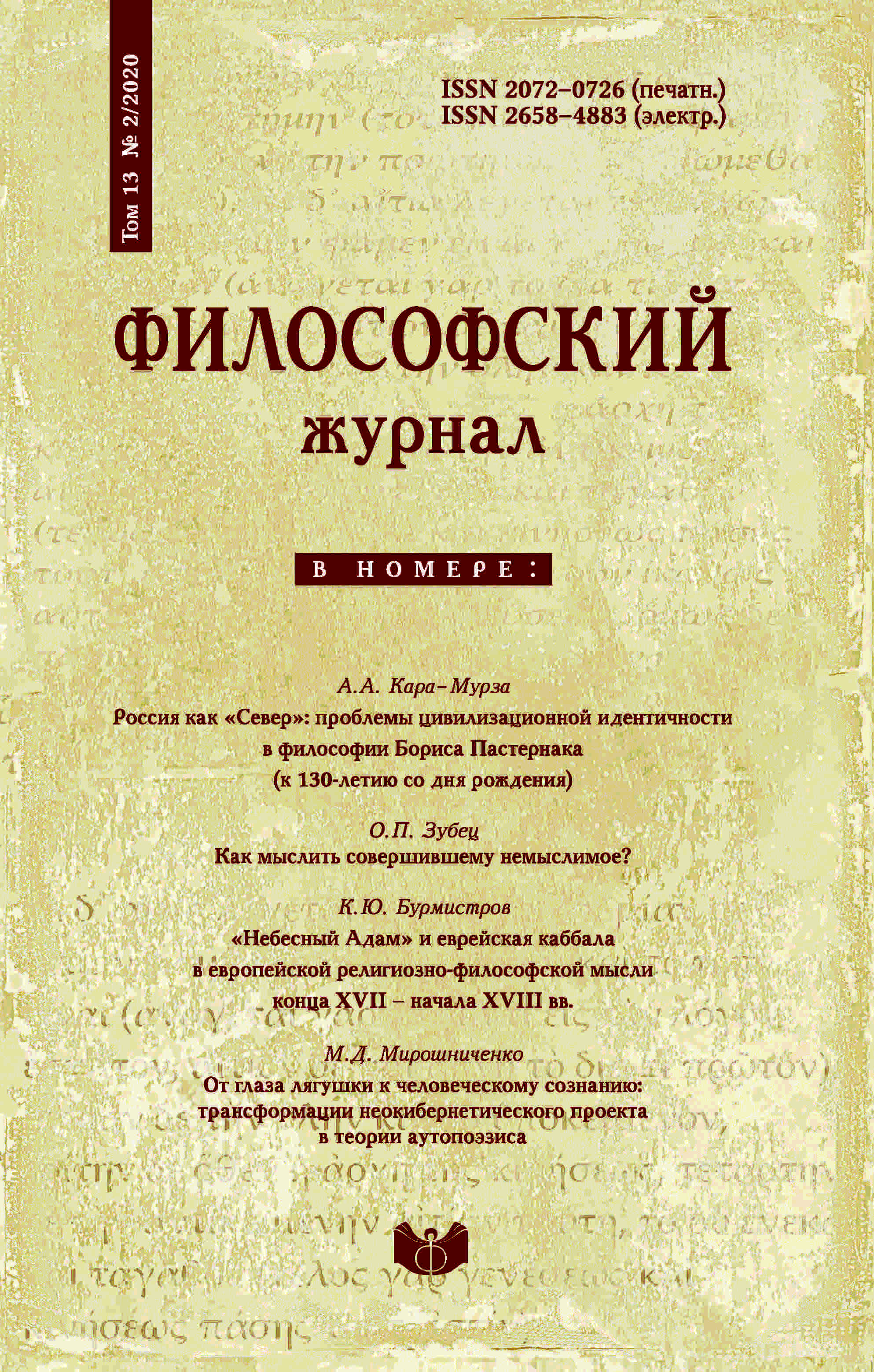From a frog’s eye to the human mind: Transformations of the neocybernetic project in the theory of autopoiesis
DOI:
https://doi.org/10.21146/2072-0726-2020-13-2-126-143Keywords:
autopoiesis, neocybernetics, systems theory, “Santiago school”, emergence, enactivismAbstract
The article considers the evolution of the theoretical views of the representatives of the “Santiago school” on the relationship between cognition and biological processes in the context of the neocybernetic movement. In contrast to the classic (first order) cybernetics, neocybernetics concentrated on observing the cognitive activity of living organisms instead of engineering machines that imitated biological and/or cognitive processes. Building on the synthesis of the data gathered in the studies of the visual perception of amphibians in the early 1970s, Humberto Maturana along with Francisco Varela proposed a theory of autopoiesis that treated living systems as cognitive systems. According to the theory of autopoiesis, cognition and life are two sides of one process of the living system’s self-production and maintenance. Due to its tensions with the genetic and evolutionary aspects of mainstream biology, this theory received almost no recognition among the biologists, but instead was widely accepted within the countercultural movement. In particular, it was the community around the magazine called CoEvolution Quarterly that was first to introduce questions of ecology, system thinking and holistic methodology in the social field. The further evolution of the “Santiago school” is associated with Varela’s project of “neocybernetic dialectics”, which aimed at dissolving the dualistic thinking. In this project, the elements of binary oppositions (such as “mind/body”) were assessed as two sides of a dynamically emerging process. The present paper shows that Varela’s later studies devoted to the widening of the scope of cognitive science (enactivism), methodological solution of the “hard problem of consciousness” (neurophenomenology) and the reclaiming of the notion of teleology in biology develop the neocybernetic project that was initially launched by Maturana and was based on his criticism of classic cybernetic epistemology.






